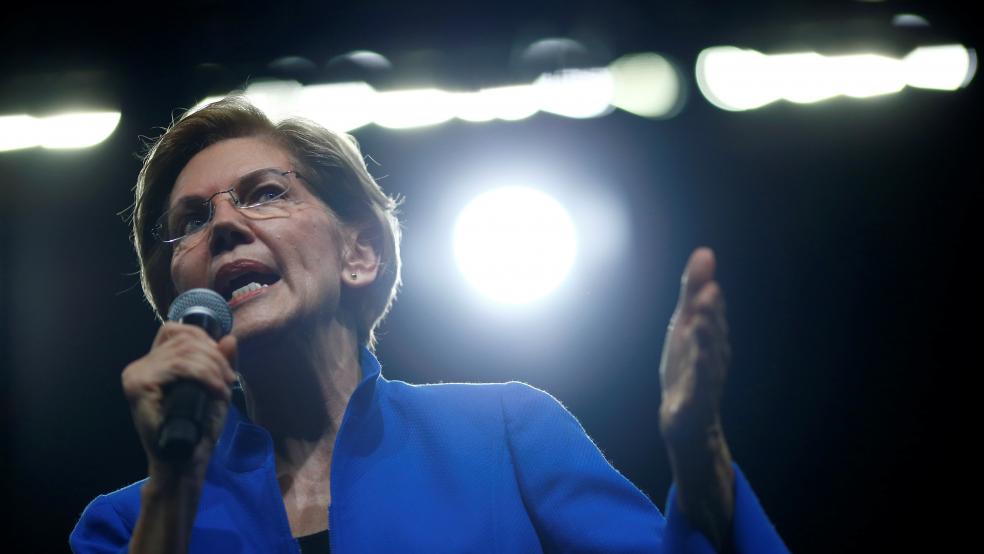Massachusetts Sen. Elizabeth Warren (D) on Monday unveiled a proposal to tax the net worth of the wealthiest Americans, a move she says would raise roughly $3 trillion in revenues over 10 years.
The Ultra-Millionaire Tax Act would impose an annual tax of 2% on net worth between $50 million and $1 billion. Households with assets of more than $1 billion would face an additional 1% surtax, for a total wealth tax of 3%. The tax would apply only to the top 0.05% of households, Warren said, without affecting the taxes of the remaining 99.95%.
The proposal, which was also introduced by Reps. Pramila Jayapal (D-WA) and Brendan Boyle (D-PA), is similar to a plan Warren offered during her run for the Democratic presidential nomination in the 2020 election.
Warren said Monday that the tax would serve a dual purpose, helping fulfill President Joe Biden’s pledge to invest in infrastructure, health care and education while also combatting growing economic inequality.
“We have watched the wealth of the billionaire class in America increase by more than a trillion dollars over the last year,” Warren said Monday. “A two-cent wealth tax would just help level the playing field a little bit, and create the kind of revenue that would let us build back better, as Joe Biden says.”
Beefing up enforcement: The bill would also provide $100 billion for the IRS to hire more personnel, modernize technology and enhance enforcement. At least 30% of those subject to the tax would be audited automatically, and a 40% “exit tax” on net worth over $50 million would be applied to anyone who seeks to leave the country.
Billions from the 100 richest: Warren’s tax would generate $78 billion from the 100 wealthiest households, according to a Bloomberg analysis Monday. Amazon’s Jeff Bezos would see the biggest bill, paying about $5.4 billion this year, while Tela’s Elon Musk would pay about $5.2 billion and Microsoft founder Bill Gates would pay about $4 billion.
Questions about Warren’s approach: Warren released a new analysis from University of California, Berkeley economists Emmanuel Saez and Gabriel Zucman that projected $3 trillion in revenue from the proposed wealth tax between 2023 and 2032. But critics of earlier versions of Warren’s proposal have argued that a wealth tax would be less effective, due in part to tax avoidance by the super-wealthy.
“There's also a lot of uncertainty over how much revenue a wealth tax could actually generate,” Erica York of the right-leaning Tax Foundation told Yahoo Money. “It would probably raise much less revenue than what Senator Warren estimates.”
Some critics have also questioned whether a wealth tax would be constitutional, a complex issue that could produce a serious barrier to creating such a levy in the U.S.
Unlikely to pass: Although the idea of a wealth tax is popular with a majority of Americans and the Warren bill is backed by many liberal-leaning groups – including the AFL-CIO, the American Federation of State, County and Municipal Employees, Americans for Financial Reform, Americans for Tax Fairness, SEIU, the Sunrise Movement, Tax March and the Working Families Party – it is not expected to be enacted any time soon. As a candidate in 2020, Biden showed little interest in a wealth tax, and the White House is not expected to back the new proposal.
Still, White House Press Secretary Jen Psaki said Monday that the president is sympathetic with Warren’s effort. “Addressing the inequities in the tax code is something he talked about as part of the Build Back Better agenda and something he remains committed to,” Psaki said at a press conference. “He has a lot of respect for Senator Warren and is aligned in the goal of making sure the ultra-wealthy and big corporations finally pay their fair share.”




